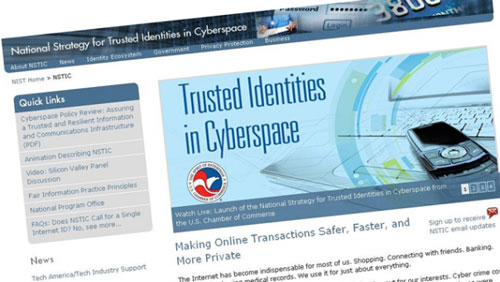Tearing down identity silos en route to statewide federation
03 January, 2014
category: Digital ID, Government, Health
The Commonwealth of Pennsylvania has had an identity and access management road map in place for a number of years. “It encompasses things like directory services, single sign-on identity management provisioning, and we have best-of-breed applications at the enterprise here for each of those areas,” says Frank Morrow, program manager for Identity and Access Management with the state.
“We have been involved with the various identity and access management-related federal programs, and certainly when National Strategy for Trusted Identities in Cyberspace (NSTIC) came up a year or so ago we were out there looking at it,” Morrow said.
Pennsylvania was awarded $1.1 million for a one-year pilot to enhance existing user identity management for citizens and modify various applications. Pennsylvania applied for an NSTIC grant in 2012, but Morrow said it wasn’t a good fit because it was geared more toward the private sector.
Now that they have the funding, the state will work toward a more pleasant and secure experience for users. They’ll start breaking down some of the barriers that greet citizens as they wade through different agencies and applications.
“Like many state governments, a lot of our applications and resources for citizens have been developed across agencies – each having their own user ID, password and security models,” Morrow says. “A citizen moving between applications or seeking services from different agency may have to register multiple times and maintain different IDs and passwords.”
With the help of the grant, Morrow sees a future in which Pennsylvania residents will be able to interact with government agencies in a more seamless way, free from all the silos that they currently encounter.
“Within our own government itself we have a lot of duplicative efforts here – both maintaining all the different systems that track the users, the user populations that are coming to them, validating their identities and making sure we’re dealing with the people they claim to be,” Morrow said.
If this pilot project is a success, Morrow says consumers will be able to go from one application to another, or from one agency to another, without the hassle of having to create new identities with each of those applications or agencies. “For the government, we’ll be breaking down some of these silos, sharing the information rather than creating more information at each level,” Morrow says.
In addition, they’ll also reduce the number of errors during data collection, lessening the potential for fraud. “This will be a voluntary application for our citizens, they do not have to enroll in it. This is in keeping with the NSTIC principles. Obviously, we think it would be to their benefit, but it is voluntary,” Morrow said. “I think this will have some great benefits for both the citizens and our government.”
The Research Triangle Institute will help determine the value of the work being done in Pennsylvania as well as in Michigan. The institute was awarded $300,000 to evaluate the results of the identity solutions deployed by both states.



